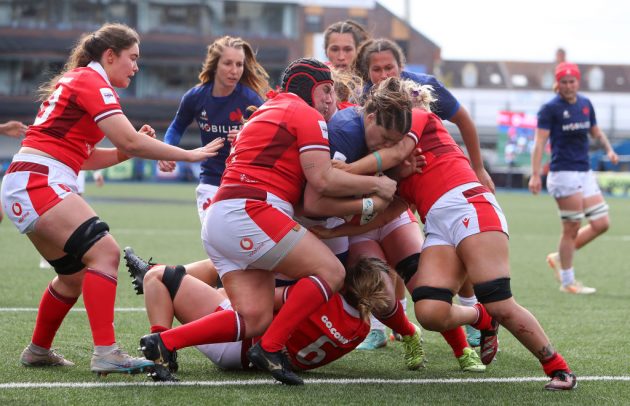Contracts are the baseline of professionalism but teams need more than that
The Red Roses are dominating this year’s Women’s Six Nations, as they have for the past six years. The major difference in that time has been the introduction of professionalism. England contracts were introduced to 28 players in 2019, that has since increased to 32.
But England have put more into the game than their contracts. They have attracted some of the best coaches, most recently attack coach Lou Meadows who has diversified their attack. But more importantly they are also investing in the domestic league.
The powers in charge of the English Premiership have a 10-year plan to professionalise the league. It is regarded as one of the best leagues in the world with international talent playing in it. That is how England have become such an unstoppable force, investment beyond just contracts. Contracts are of course important and are the foundation of professionalism. But investment must run deeper than that.
Read more: PWR rebrand
Evidence of that further investment is also clear in the French set-up. Their league may not be as strong as the Premiership Women’s Rugby but a good number of the French players compete and thrive on the domestic stage. That then translates on the international stage. France have beaten every team in the Women’s Six Nations in the past few years bar England.
All of the nations in the tournament have introduced player contracts, they all did so after England. The payment structures and details are different depending on the nation. The same can’t be said for further investment and this year’s tournament sees Wales at the heart of the discussions.
In 2023 Wales had an impressive Women’s Six Nations and they finished third to bag a spot in the WXV1. Plaudits came for the investment put into introducing professional contracts with the impact of those being shown with results. However, this year Wales are yet to win a match and it demonstrates that the investment can’t only be in contracts.
Money needs to be funnelled into things like coaching staff and analysts at the international level. But also it needs to be seen at domestic level too. Wales women club rugby is not receiving proper investment and the majority of the international squad play in England’s Premiership. For continued success on the big stages, the club game and other measures at the international level needs cash inflow.
Wales head coach Ioan Cunningham was asked about the topic after their loss to France.
He said: “This team was 13th in the world, they hadn’t won a game in two and a half years [before turning professional in 2022].
“We’ve still got L plates on when it comes to professionalism, people have got to understand that.”
This does not only apply to Wales either, every nation in the tournament can be doing more for their national sides. A number of Scottish and Irish players compete in the English top-flight with their home domestic competitions not to the same standard.
Professionalisation is about the nations moving slowly so women’s rugby can be financially sustainable. Investments across the board will cost money. Small steps are needed but aside from contracts other steps moving forward aren’t being taken. If that persists, England will long reign as champions.
Download the digital edition of Rugby World straight to your tablet or subscribe to the print edition to get the magazine delivered to your door.





